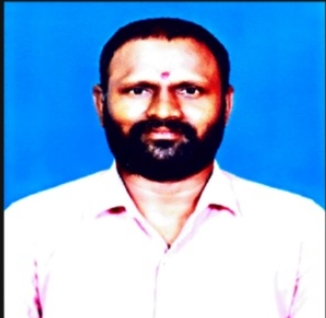Attendance is correct, But not visible – Goods are disappearing in Anganwadis
Anganwadi centers across the district have come under scrutiny for their alleged mismanagement and corruption, jeopardizing the crucial nutrition programs aimed at pregnant women, infants, and children.
Despite concerted efforts by the government to ensure the provision of nutritious meals, reports indicate a rampant disregard for protocols and a blatant exploitation of resources.
The Women and Child Welfare Department’s initiatives, designed to combat malnutrition and anemia, are falling short due to a lack of oversight from responsible authorities.
Despite the distribution of essential goods intended for beneficiaries, including nutritious meals, pulses, milk packets, and eggs, many centers are failing to adhere to prescribed guidelines.
Shockingly, goods are being distributed without being cooked, rendering them unfit for consumption and defeating the purpose of the programs.

One of the most alarming allegations is the falsification of attendance records. Despite a significant decrease in the number of attendees, registers at Anganwadi centers purportedly show full attendance.
It is reported that attendance is being recorded for absent children, leading to inaccurate calculations and misappropriation of resources. Furthermore, there are accusations that goods are being wasted and destroyed, while meticulous records mask the discrepancies.
The issue extends beyond attendance manipulation; there are also concerns regarding menu adherence. Despite claims of providing meals to primary school children, the prescribed menu is allegedly not followed anywhere.
This lack of conformity undermines the nutritional integrity of the programs and raises questions about their efficacy.
Moreover, the physical infrastructure of Anganwadi centers raises eyebrows. Many centers are still operating out of rented buildings, suggesting a lack of investment in proper facilities.
Additionally, supervisors are failing to cross-verify attendance and food distribution, exacerbating the problem of mismanagement.
Compounding these issues is the failure to enforce retirement policies for Anganwadi teachers. In Telangana, teachers exceeding the age of retirement continue to serve without oversight. The absence of a robust monitoring system further exacerbates these systemic failures.
To address these pressing concerns, stakeholders must take urgent action. The Integrated Child Development Services (ICDS) must implement stringent controls to ensure the accurate recording of attendance and the proper distribution of nutritional goods. Supervisors should be empowered with greater authority to oversee Anganwadi centers effectively.
Furthermore, regular audits should be conducted biannually to assess the performance and integrity of Anganwadi centers.
District administrators must play a proactive role in monitoring ICDS officers and ensuring compliance with established protocols.
Most crucially, individual accountability must be emphasized. Anganwadi teachers and workers must recognize their responsibility in delivering essential services to vulnerable populations and act with diligence and integrity.
The revelations surrounding Anganwadi centers are deeply concerning and demand immediate intervention. The integrity of nutrition programs hangs in the balance, and it is imperative that corrective measures are implemented swiftly to restore trust and ensure the effective delivery of services to those who need them most.
Failure to address these issues not only undermines the government’s efforts to combat malnutrition but also jeopardizes the well-being of countless individuals relying on these vital programs.
Challenges Persist Despite ICDS Implementation: Nutrition Goals Remain Elusive
Despite the implementation of the Integrated Child Development Services (ICDS) aimed at improving the nutritional status of women and children in the state, significant challenges persist.
The desired objectives have yet to be achieved, with high percentages of low-birth-weight babies, underweight children (under 3 years old), and anaemic pregnant women still prevalent. Consequently, the reduction of Infant Mortality Rate (IMR) and Maternal Mortality Rate (MMR) remains a formidable challenge.
Integrated Child Development Services: Nurturing Holistic Growth for Women and Children
Across the state, a network of 35,700 Anganwadi Centers operates under the umbrella of 149 ICDS Projects. These centers, comprising 31,711 Main Centers and 3,989 Mini Centers, serve as vital hubs for delivering essential services to communities, particularly focusing on the early development and well-being of children.

Also, Read Beat This Summer With Car Ac Recirculation Button On…

With a robust business leadership background cutting across diverse sectors like Banking, Insurance, Capital Markets, Manufacturing, Education, and University General Management, he has accumulated an impressive 22 years of experience under his belt. His expertise has been sought in international spheres when his leadership has influenced giants and insights have shaped strategies. Here Is his full bio







